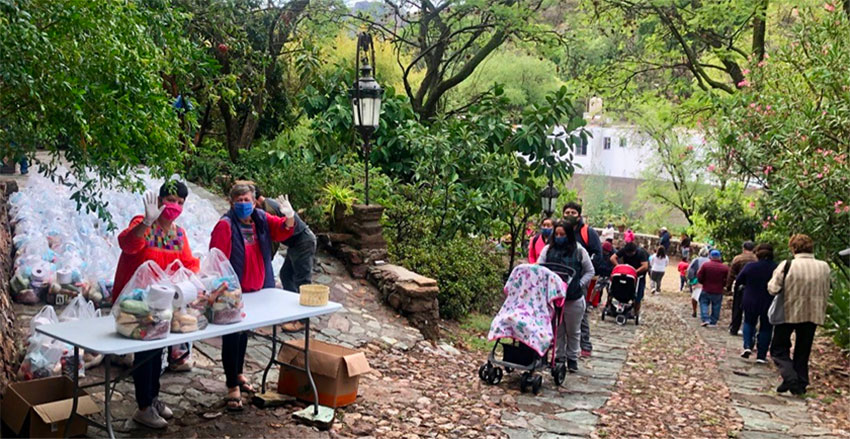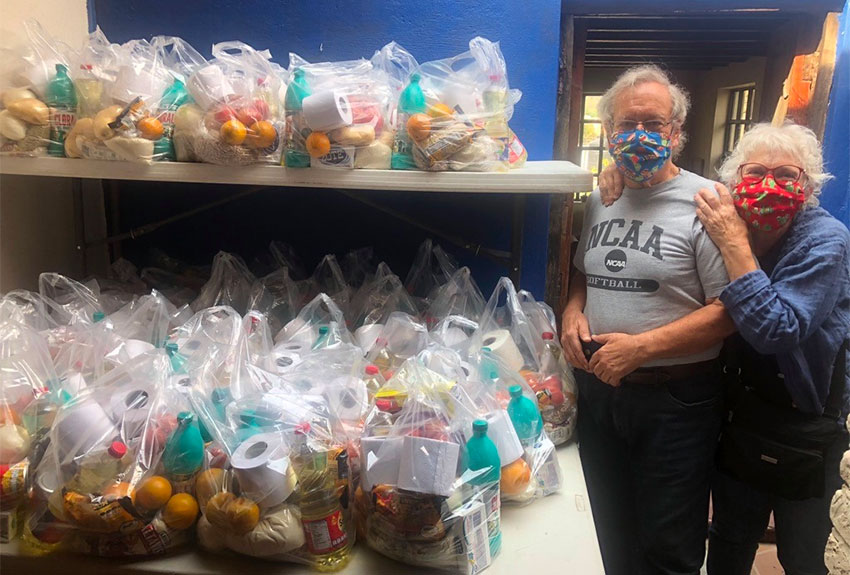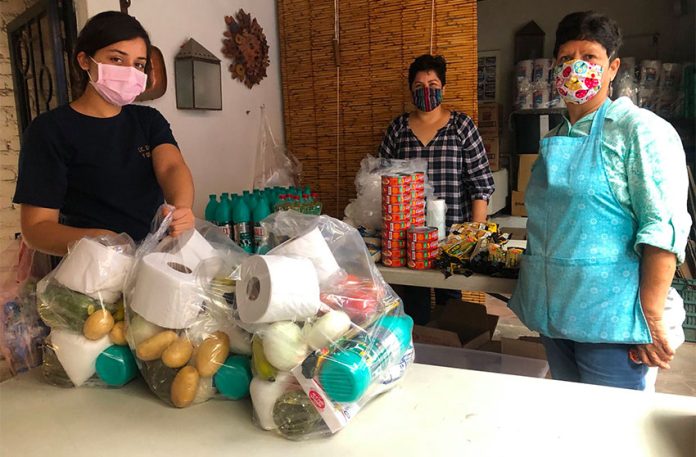For expats who call Mexico their permanent home, self-quarantine — quédate en casa — may be uncomfortable or boring, but most have sufficient means to cover the basics.
But as the weeks and months have gone by they’ve watched their neighbors and friends struggle to make ends meet, their communities shuttered and quiet. Behind closed doors, they knew people were afraid, wondering what the future would hold, where the next meal would come from and how they would survive.
Children’s advocate and beloved TV host Mister Rogers has pertinent advice for times like these.
“When I was a boy and I would see scary things in the news, my mother would say to me, “Look for the helpers. You will always find people who are helping.”
One of those people is Guanajuato resident Betsy McNair. Compelled to help those less fortunate — including her working-class neighbors in the community of Marfil where she lives – she thought for a week and then went into action. A background in catering and running restaurant kitchens directed her decision to start a food bank. Phone calls to friends yielded US $300 overnight which grew to $2,000 in two days. Posting on Facebook brought more money and more help.

“I see people going through the dumpster every day hoping to find food or something they can sell. They don’t have food, they’re losing their jobs,” said Betsy. “I thought, ‘We need to do this right now.’”
“The first week we hoped to get the priest to announce at church that we’d be doing this on Easter Sunday,” Betsy recalled. “But we were never able to contact him, so we just put up a poster on Saturday that we would be giving out despensas [bags of food basics] on Sunday. We packed 50 and crossed our fingers that enough people would show up that we wouldn’t have too many extras.”
“We needn’t have worried: the 50 were gone in half an hour and there were 100 more people in line!” she said. “It broke my heart.”
Concha Marín, who normally works with Betsy in her Mexico tour business and is now project manager for the food bank, came up with the idea to give tickets to the rest of the people in line so as to guarantee them a despensa the following week. They gave out more than 100 tickets. But even that wasn’t enough: people continued to knock on Betsy’s door all afternoon until she’d given out about 150 tickets total.
That week they packed 200 despensas, and because of the ticket system, had one for everyone that was promised one, plus another 50 or so. They then gave out 175 tickets to the rest of the people waiting, guaranteeing them a despensa the following week.
“It won’t be enough, but it’s four times what we did last week,” said Betsy. “As Concha and I tell each other at least once a day, Algo es mejor que nada.” (Something is better than nothing.)

As word has gotten out, the food bank is serving even more people. They’ve been able to start doing home deliveries to housebound people in need who can’t get to them. Last week, neighbor Estela Cordero, director of Guanajuato’s Gene Byron Museum, offered the use of the museum space, staff and resources, getting it out of Betsy’s living room and into a more easily accessible and bigger public location.
Local police, Civil Protection and transit have stepped in to help with crowd control, checking ID to be sure people are from the Marfil colonia, and handing out masks and hand sanitizer while keeping order and offering encouragement to the 400+ people in line each week. And the Guanajuato state secretary has offered his support and texts Betsy several times a week to see how they’re doing.
The ticket system enables them to plan their purchases, which Betsy and Concha make at small tiendas and mom-and-pop stores to help those businesses too. The despensas are filled with beans, rice, potatoes, onions, lentils, sugar, cooking oil, oranges, eggs, tomatoes, pasta, zucchini, bleach, soap and toilet paper. They make a point to include fresh fruit and vegetables, and pet food and feminine products are also available. Thanks to the police, distribution goes smoothly and they’ve been able to distribute 200 bags in about 45 minutes.
“So far we’ve been funded about 90% by friends in the U.S. and Mexico who jumped on board to support us,” said Betsy, who sees this as an ongoing project, at least until the crisis is over. “It’s running us about 201 pesos per despensa ($8.32) times 225 bags which is 45,225 pesos or $1,872 per week. All that money is being spent in small stores in the neighborhood.”
A Facebook page has updates, info and photos, and a Paypal site handles donations. As of May 15, donations totalled $14,293. This week’s distribution will be the sixth, for a grand total of 1,150 despensas given out. A total of 142 people have donated, with 27 donating numerous times. (“I call them our Repeat Offenders,” laughed Betsy.)
“Since we started this, we’ve always had enough money on hand for the next two weeks,” said Betsy. “I can’t begin to tell you how good it feels to be able to plan into the future. We’re so very, very grateful. Hopefully the generosity will continue and we’ll be able to keep this going as long as the need is there.”
Betsy said two other groups of people have reached out to tell her they’re starting up their own programs in their own neighborhoods and asked for her advice.
“The truth is that the need is everywhere,” said Betsy. “Every day when Concha leaves, we both cry.”
Janet Blaser is a frequent contributor to Mexico News Daily. She lives in Mazatlán.
